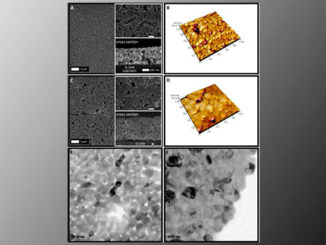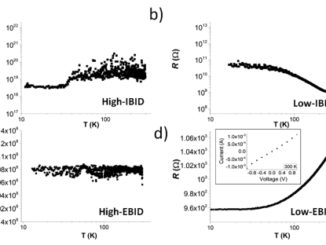
Decay of photo-induced conductivity in Sb-doped SnO2 thin films, using monochromatic light of about bandgap energy
Abstract: Doping tin dioxide (SnO2) with pentavalent Sb5+ ions leads to an enhancement in the electrical conductivity of this material, because Sb5+ substitutes Sn4+ in the matrix, promoting an electronic density increase in the conduction band, due to the donor-like nature of the doping atom. Results of computational simulation, based on the Density Functional Theory (DFT), of SnO2:4%Sb and SnO2:8%Sb show that the bandgap magnitude is strongly affected by the doping concentration, because the energy value found for 4 at%Sb and 8 at%Sb was 3.27 eV and 3.13 eV, respectively, whereas the well known value for undoped SnO2 is about 3.6 eV. Sb-doped SnO2 thin films were obtained by the sol–gel-dip-coating technique. The samples were submitted to excitation with below theoretical bandgap light (450 nm), as well as above bandgap light (266 nm) at low temperature, and a temperature-dependent increase in the conductivity is observed. Besides, an unusual temperature and time dependent decay when the illumination is removed is also observed, where the decay time is slower for higher temperatures. This decay is modeled by considering thermally activated cross section of trapping centers, and the hypothesis of grain boundary scattering as the dominant mechanism for electronic mobility.
Author(s): Floriano, E. A.; Scalvi, L. V. A.; Sambrano, J. R.; et al.
Applied Surface Science
Volume: 267 Pages: 164-168 Published: 2013
DOI: https://doi.org/10.1016/j.apsusc.2012.09.003




